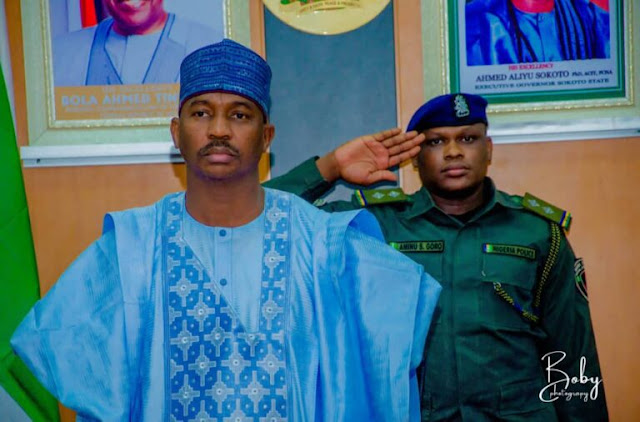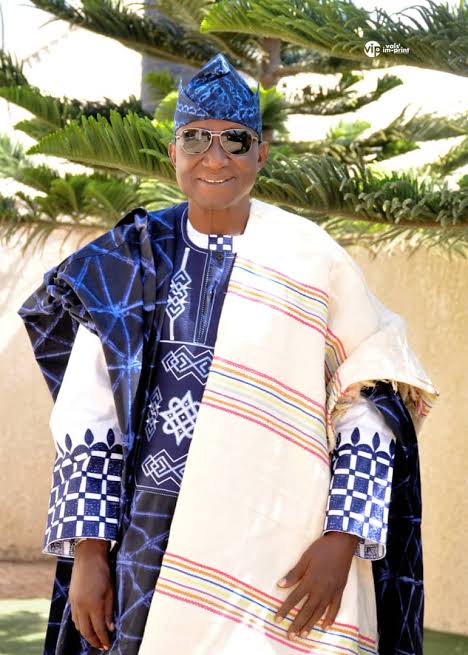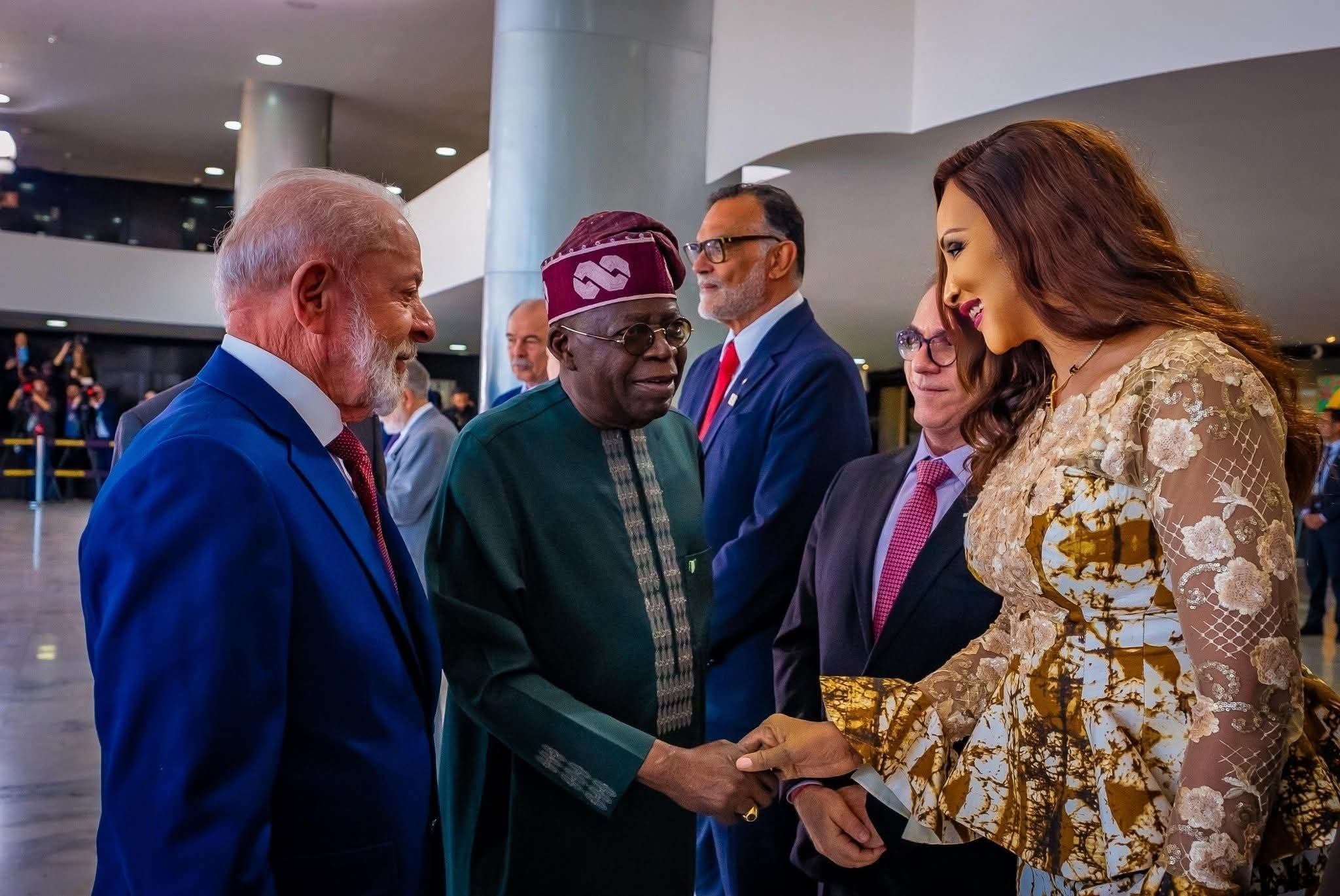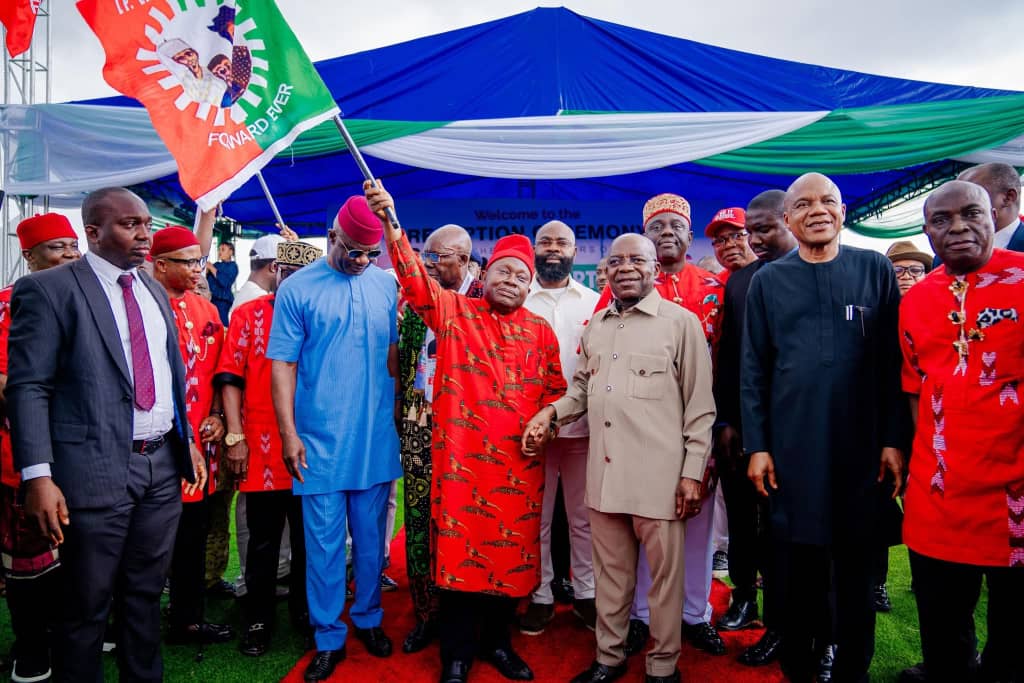In a powerful call for unity and national development, Governor Ahmad Aliyu of Sokoto State has urged Qur’anic memorizers and Muslims across the state to champion peace, religious tolerance, and brotherhood. The governor made these remarks during the graduation ceremony of 110 students from the Sokoto branch of the Sheikh Dahiru Bauchi Islamic School on Saturday, held in Sokoto. The event, which celebrated the students’ achievement in memorizing the Holy Qur’an, also served as a platform to emphasize the importance of harmony and moral education in fostering sustainable development in Sokoto State and Nigeria at large. This comprehensive report delves into the significance of the governor’s message, the contributions of key stakeholders, and the broader implications for religious education and societal progress.
A Call for Peace and Unity
Governor Aliyu’s address at the graduation ceremony underscored the critical role of peace and religious tolerance in achieving meaningful development. Speaking to an audience that included religious scholars, community leaders, parents, and the graduating students, the governor emphasized that no society can thrive in an atmosphere of hatred, division, or religious extremism. “No meaningful development can take place in an atmosphere of hatred, division, or religious extremism,” Aliyu stated, highlighting the need for unity across religious and ethnic lines.
Sokoto State, often referred to as the “Seat of the Caliphate,” holds significant historical and religious importance in Nigeria. As a predominantly Muslim state with a rich Islamic heritage, Sokoto has long been a center for religious scholarship and education. However, like many parts of Nigeria, the state faces challenges related to religious and ethnic tensions, which can undermine social cohesion and economic progress. Governor Aliyu’s call for peace and tolerance reflects his administration’s commitment to addressing these challenges and fostering an environment conducive to development.
The governor’s message resonates with Nigeria’s broader need for unity in a country characterized by diverse religious and cultural identities. By urging Qur’anic memorizers—individuals who have committed the entire Qur’an to memory—to preach peace and tolerance, Aliyu is positioning these young scholars as ambassadors of harmony. Their role as custodians of Islamic knowledge gives them a unique platform to influence their communities positively, promoting values that align with the teachings of Islam, such as compassion, respect, and coexistence.
Prioritizing Moral and Religious Education
Governor Aliyu outlined his administration’s efforts to promote moral and religious education as a cornerstone of development in Sokoto State. He highlighted several initiatives aimed at strengthening spiritual and educational institutions across the state. “My administration has prioritized the promotion of morals, religious education, and enhancing other spiritual centers across the state,” he said. These efforts include the reactivation of the Hisbah board, a body responsible for enforcing Islamic moral codes, and the rehabilitation of numerous Jumuat mosques to improve their functionality and accessibility.
In addition to infrastructure improvements, the state government has introduced stipends for mosque maintenance, ensuring that these places of worship remain well-maintained and conducive to spiritual activities. The administration has also provided Ramadan feeding support to Islamic institutions, a gesture that underscores its commitment to supporting the welfare of its citizens during significant religious periods. These initiatives reflect a holistic approach to governance that integrates spiritual, moral, and social development.
Aliyu’s pledge to allocate land for the construction of a permanent site for the Sheikh Dahiru Bauchi Islamic School further demonstrates his administration’s dedication to advancing Islamic education. The school, which has been instrumental in training students to memorize the Qur’an, currently operates from a temporary site. The allocation of land will provide a stable and conducive environment for the institution’s growth, enabling it to expand its reach and impact. The governor also called on wealthy individuals to support Islamic education, emphasizing the importance of collective responsibility in sustaining such institutions.
The Sultan’s Message of Universal Values
The Sultan of Sokoto, Alhaji Sa’ad Abubakar, a revered traditional and religious leader, also spoke at the graduation ceremony, reinforcing the governor’s call for unity and tolerance. The Sultan urged followers of all faiths to focus on shared values such as love, compassion, and respect for human dignity. “There are universal principles that bind humanity together, regardless of doctrinal differences, as Allah created human beings to complement one another,” he said. His remarks highlight the importance of interfaith harmony in a country where religious diversity is both a strength and a potential source of conflict.
As the spiritual leader of Nigeria’s Muslim community and the President-General of the Nigerian Supreme Council for Islamic Affairs (NSCIA), the Sultan’s influence extends beyond Sokoto State. His call for unity resonates with Nigeria’s broader aspirations for peace and coexistence, particularly in regions affected by religious and ethnic tensions. By emphasizing shared values, the Sultan is advocating for a vision of society where differences are respected, and collaboration is prioritized.
The Sultan also commended the school’s initiators, proprietor, and teachers for their dedication and resilience in nurturing the graduating students. He described the memorization of the Qur’an as a significant achievement but urged the graduates to view it as the first step in their educational journey. “The religion of Islam is vast, with many branches of studies,” he said, encouraging the students to pursue further education in formal schools and universities. This advice reflects the Sultan’s belief in the importance of combining religious knowledge with professional skills to achieve self-reliance and contribute to society.
The Sultan’s call for political leaders to lead by example through inclusive and fair governance further underscores the need for responsible leadership. He urged leaders to prioritize policies that promote equity and justice, ensuring that all citizens, regardless of their background, have access to opportunities and resources. This message aligns with Governor Aliyu’s efforts to strengthen governance structures and promote development in Sokoto State.
The Role of the Sheikh Dahiru Bauchi Islamic School
The Sheikh Dahiru Bauchi Islamic School has emerged as a beacon of Islamic education in Sokoto State, training young scholars to memorize the Qur’an and instilling in them the values of discipline and piety. The school’s proprietor, Alhaji Kabiru Mu’azu-Jodi, expressed gratitude to Governor Aliyu, the Sultan, parents, and other stakeholders for their support. He pledged to continue promoting religious discipline and ensuring that the school lives up to its reputation as a center of excellence.
The graduation of 110 students who have memorized the Qur’an is a testament to the school’s success and the dedication of its teachers and administrators. Memorizing the Qur’an, known as becoming a Hafiz, is a significant achievement in Islamic scholarship, requiring years of rigorous study and commitment. The school’s ability to produce such a large number of graduates highlights its capacity to contribute to the spiritual and intellectual development of Sokoto’s youth.
The ceremony was marked by prayers for the nation’s peace and stability, led by Sheikh Ibrahim Dahiru-Bauchi and other Islamic scholars. These prayers reflect the broader context of Nigeria’s challenges, including security issues and economic hardships, and underscore the role of religious institutions in fostering hope and resilience. The presentation of awards to the graduating students further celebrated their achievements and encouraged them to continue their pursuit of knowledge.
State Support and Community Contributions
The Sokoto State Government demonstrated its commitment to the graduates and the school through financial support. Each of the 110 graduating students received a donation of N20,000, while the teachers were collectively awarded N2 million. These contributions recognize the students’ hard work and the teachers’ dedication, providing tangible support to sustain their efforts. Additionally, undisclosed donations from prominent figures such as Senator Aliyu Wamakko and Senator Abdulaziz Yari further highlight the community’s investment in Islamic education.
These financial contributions are more than symbolic gestures; they reflect a broader commitment to empowering the youth and supporting institutions that promote moral and spiritual development. By investing in the graduates, the state government is fostering a generation of leaders who can contribute to Sokoto’s development while upholding the values of peace and tolerance.
Broader Implications for Sokoto and Nigeria
Governor Aliyu’s emphasis on peace, tolerance, and religious education has significant implications for Sokoto State and Nigeria as a whole. Sokoto, as a major center of Islamic scholarship, has the potential to lead by example in promoting interfaith harmony and moral education. The governor’s initiatives, such as the reactivation of the Hisbah board and the rehabilitation of mosques, demonstrate a commitment to strengthening the state’s religious and cultural heritage while addressing contemporary challenges.
At the national level, the call for peace and tolerance is particularly relevant in light of Nigeria’s ongoing struggles with religious and ethnic conflicts. By promoting shared values and encouraging interfaith dialogue, leaders like Governor Aliyu and the Sultan are contributing to a vision of Nigeria where diversity is a source of strength rather than division. The emphasis on combining religious education with professional training also aligns with Nigeria’s need to equip its youth with the skills to navigate a rapidly changing global economy.
The success of the Sheikh Dahiru Bauchi Islamic School serves as a model for other states and institutions seeking to promote religious education while fostering self-reliance and community development. By investing in such institutions, governments can empower young people to become agents of positive change, contributing to both spiritual and economic progress.
Challenges and Opportunities
While the graduation ceremony and the governor’s initiatives are cause for optimism, there are challenges to consider. The promotion of religious tolerance requires sustained efforts to address deep-seated prejudices and foster dialogue between communities. Sokoto, like other parts of northern Nigeria, has faced security challenges, including banditry and insurgency, which can undermine efforts to promote peace and development. The state government will need to continue investing in security measures to create a stable environment for educational and religious institutions to thrive.
Additionally, the call for students to pursue formal education alongside religious studies highlights the need for accessible and quality educational institutions. Sokoto State must address gaps in its education system, particularly in rural areas, to ensure that all students have the opportunity to acquire professional skills. Partnerships with universities, vocational training centers, and private-sector stakeholders could help bridge these gaps and create pathways for self-reliance.
The allocation of land for the school’s permanent site is a significant opportunity, but it will require careful planning and resource mobilization to ensure its success. The involvement of wealthy individuals and philanthropists, as urged by the governor, will be critical in sustaining such initiatives and expanding their impact.
Conclusion
The graduation ceremony of 110 Qur’anic memorizers from the Sheikh Dahiru Bauchi Islamic School in Sokoto was more than a celebration of academic achievement; it was a powerful statement on the importance of peace, tolerance, and education in building a prosperous society. Governor Ahmad Aliyu’s call for Qur’anic memorizers and Muslims to preach peace and unity reflects his administration’s vision for a harmonious and developed Sokoto State. Supported by the Sultan of Sokoto’s advocacy for shared values and inclusive governance, the event underscored the role of religious education in fostering social cohesion and national progress.
Through initiatives such as the reactivation of the Hisbah board, mosque rehabilitation, and financial support for students and teachers, the Sokoto State Government is demonstrating a commitment to moral and spiritual development. The contributions of community leaders, scholars, and philanthropists further highlight the collective effort required to sustain such institutions. As Sokoto State continues to invest in its youth and promote interfaith harmony, it has the potential to serve as a model for Nigeria, demonstrating the power of education and unity in overcoming challenges and building a brighter future.







